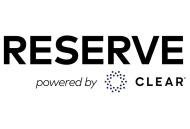
Now some cities have begun using virtual queuing solutions in an entirely new way: as a valuable economic development tool to support local businesses.
By adopting a citywide virtual queue platform and sharing it with small businesses in the community, civic leaders can provide a useful tech tool to these retailers while also offering a faster, safer and more convenient way for residents to do business. And bringing together these businesses onto a single platform provides a one-stop shop for residents.
The result? A stronger, more competitive local business ecosystem, says Rommia White, director of U.S. operations at Whyline, a software company that helps organizations overcome queueing challenges and bottlenecks with smart-scheduling technology. The company’s public sector partners include municipal agencies in Providence, R.I.; Lincoln, Neb.; and Seattle, Wash.; as well as large global cities such as Buenos Aires. Whyline also serves numerous companies in the private sector, including multinational banks, Fortune 500 retailers and premiere health facilities.
“This is more than just a queue management system,” White says. “It’s a tool to seek out and identify participating businesses that are open for citizens, to create a supportive and efficient experience.”
Speaking on a recent Government Technology webinar, White detailed Whyline’s new City Fast Pass program, which works with cities to set up a smart-queuing solution they can then share with local businesses for free.
“The most successful cities are the ones who have figured out innovative ways to support small businesses,” she says. “So by crowdsourcing access to technology – and changing how we secure resources for the small businesses in our community – we can actually start to change how economic development looks.”
Cities have always sought ways to boost their local economy. But economic development solutions – particularly quick, easy wins that are simple to implement – are especially important right now.
“Coming out of the pandemic, we’ve seen how much small businesses struggled,” White says. “So how can [cities] build a more resilient ecosystem to support them – not only now, but for the future?”
By providing local businesses with such a useful tool, cities offer them access to technology they might otherwise be unable to afford.
“The biggest advantage large private sector organizations have over small businesses is unparalleled access to technology,” says White. “When we look at economic development and support for small businesses in cities, we find that a lot of what’s causing these small businesses to struggle is just a decreased access to technology and the benefits that provides.”
Ultimately, shared innovations like virtual queuing are a way for community leaders to give local businesses a leg up in competing with big box stores, global brands and online retailers, White says.
“It’s about leveling the playing field, to keep these communities healthy and keep supporting small businesses.”
To learn more about Whyline’s City Fast Pass program, and how communities can use smart-scheduling solutions to grow their local economies, the complimentary webinar “Enhancing Government While Strengthening Small Businesses: How Virtual Queuing is a Win-Win for Digital Transformation and Economic Development Efforts” is available to watch on-demand.





